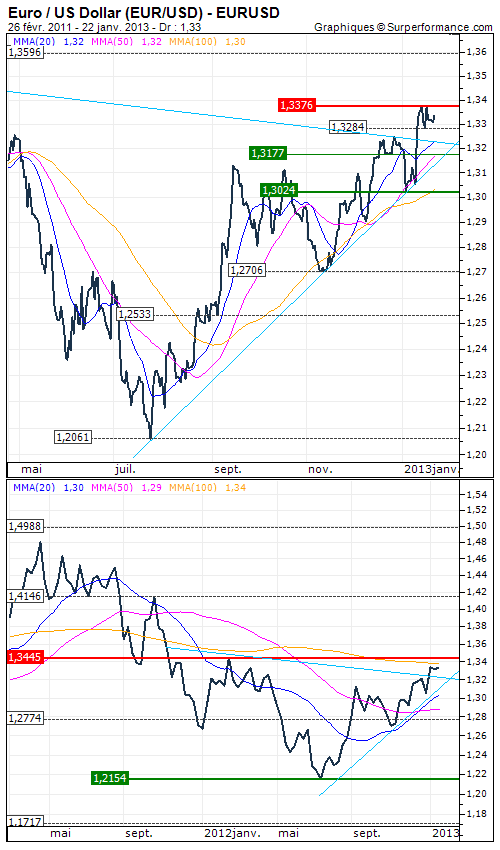Euro / US Dollar (EUR/USD) : Confidence is back
By Mathieu Burbau
Lack of compromise in Congress last December 31, the US Congress finally voted in an emergency a text to avoid the implementation of the “fiscal cliff” that threatened to plunge the world's largest economy into recession. But negotiations could increase in intensity in the coming weeks due to the decisions about the debt ceiling and reducing public expenditures have been postponed at the end of February.
The dollar regained the strength from the following meeting minutes after the U.S. central bank has revealed that some officials of the institution were in favor of a slowdown or even stop asset purchases, worrying about their long-term impact.
The speech of Mario Draghi at his first press conference and annual general appeasement of tensions on the bond markets in the euro offered more catalysts to register new highs for 11 months. The President of the ECB has kept the minimum bid rate to 0.75% for the sixth consecutive month, decided unanimously by the governors. The ECB President also believes that indicators have stabilized despite record unemployment in the Eurozone and now expects a gradual recovery in 2013.
Technically, the Euro is closer to our long-term goal at USD 1.3445 where we would switch our prevision from bullish to neutral in anticipation of a response from officials of the Old Continent. Indeed, beyond this threshold, the statements about the inherent problems in the high cost of European currency could multiply in the wake of what Jean-Claude Juncker said, President of the Eurogroup, who is afraid about consequences of the growth in Euroland.





